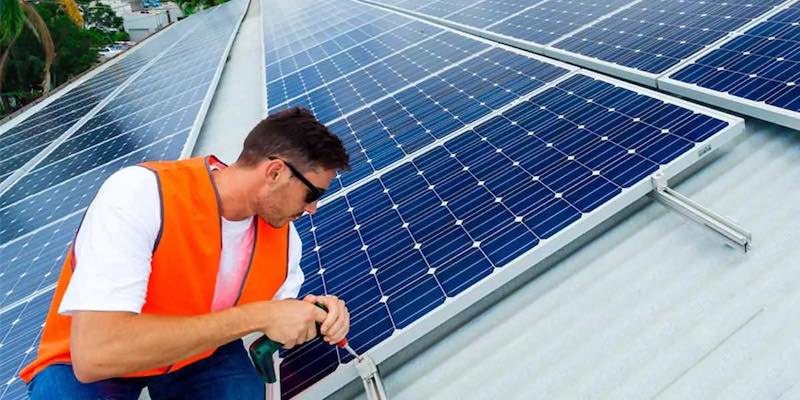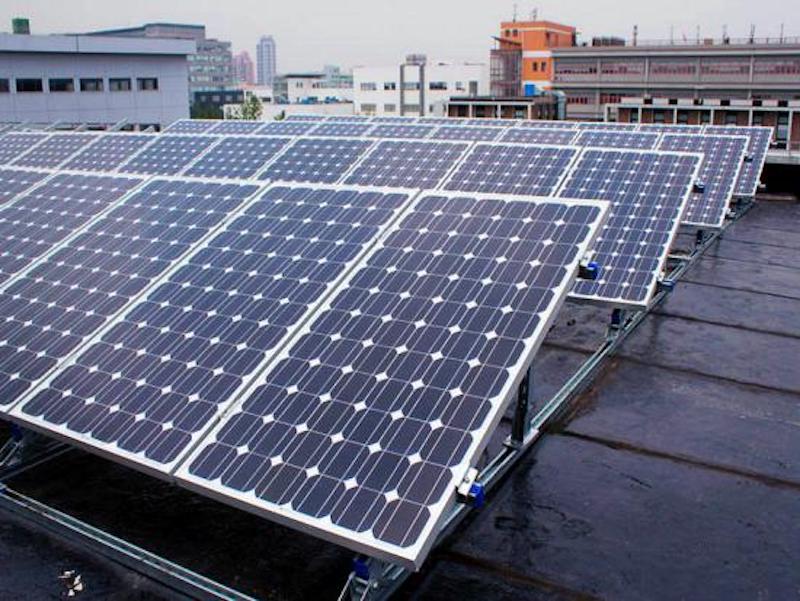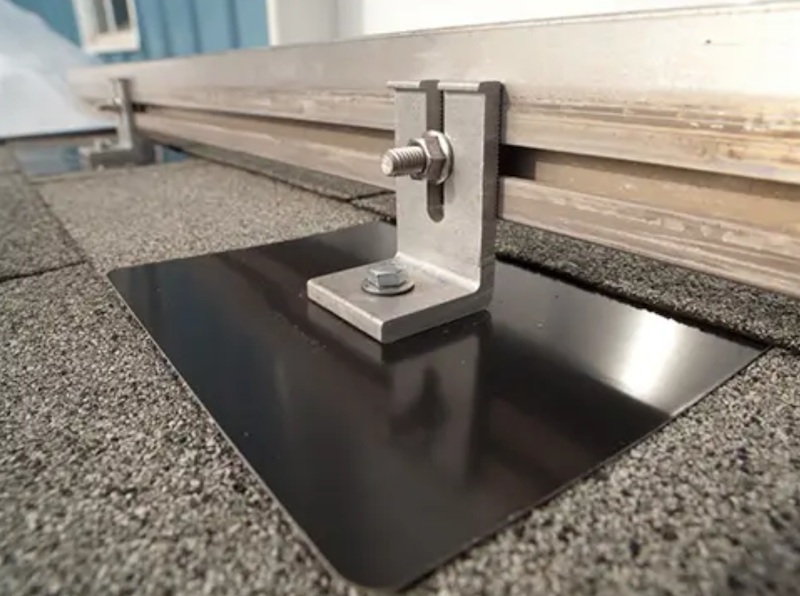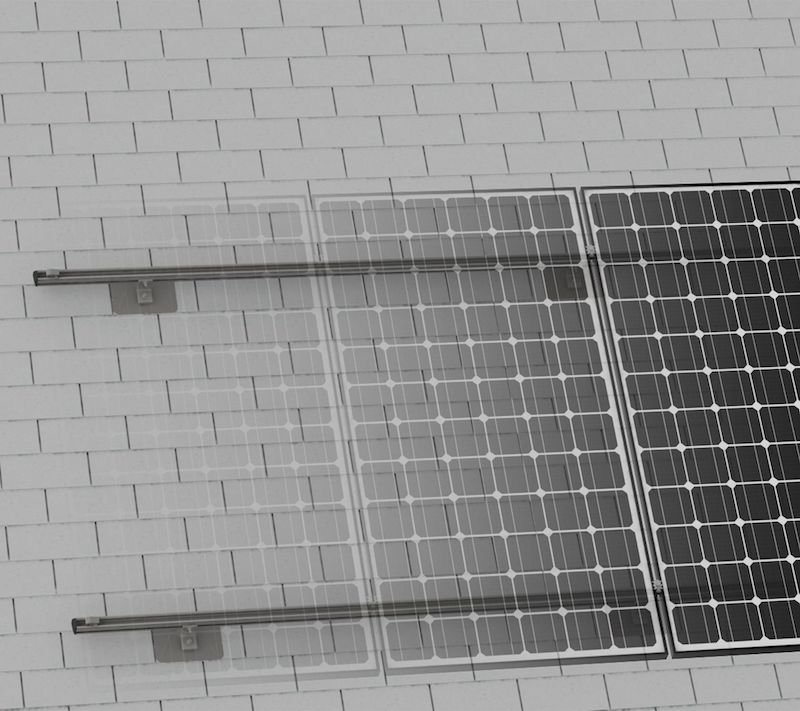Installing solar panels is a huge investment, but it's one that saves you money in the long run. Solar panels are great for the environment and can effectively lower your carbon footprint. Before you purchase solar panels, it's important to consider how they affect your roof's warranty, which can be voided with modifications like solar panels and skylights, or any situation where shingles are removed. Let's dig into the details.
Types of solar and roofing warranties
Solar warranties

Solar panels typically feature both a product warranty and a power warranty, sometimes bundled together. Some solar companies may offer extended warranties for an additional fee.
Product warranty - A solar product warranty is your typical manufacturer's warranty, ensuring coverage for any faulty materials. Most companies will feature product warranties for about 5-10 years and can be extended an additional 5-15 years for a total of 25 years. Solar inverters typically last between 10-12 years and usually need to be replaced at least once.
Power warranty - A power warranty or performance guarantee ensures that your solar panels output a specific amount of energy over their lifetime. It's normal for panels to degrade over time, failing up to 1% per year. Companies offer linear power warranties to ensure a consistent level of degradation per year. These types of guarantees ensure a consistent level of degradation per year. Some solar companies will feature a stepped warranty, which includes coverage for a flat rate and decreases at different stages of the solar system.
Roofing warranties

Image source: Crucial Roof Services
Similar to solar panels, your roof usually features two different types of warranties which include coverage for roofing materials and labor. Some roofing companies will also feature extended warranties with coverage for a longer period of time or include a roofing system warranty that covers both materials and labor but only for a specific amount of time.
Standard warranty - A standard manufacturer's warranty usually covers any kind of material defect from the manufacturer. With materials like asphalt shingles, companies usually include a warranty lasting between 25-30 years. Some manufacturers, like Owens Corning, feature a limited lifetime warranty of up to 50 years. These warranties will not cover any type of roof damage caused by poor installations.
Workmanship warranty - Workmanship warranties are issued by the roofing contractors and can vary in length and coverage depending on the roofer and the materials. These types of warranties typically cover any damage done to the interior of your home, or any damage caused by the installation itself and not other factors like severe weather.
Extended warranties - Some manufacturers include extended warranties when you choose to install their complete roofing system. These types of warranties cost a little extra but also offer more expansive coverage for errors made during the roof installation process and materials like underlayment, water barriers, soffits, hip and ridge cap shingles, and starter shingles.
Key factors to keep in mind

Image source: Los Angeles Times
While specific modifications and removal of shingles are the most likely reasons for a solar energy system voiding your roofing warranty, there are several key factors to keep in mind.
Installation
More often than not, any kind of damage done to your roof or solar panels usually traces back to poor installation. It's important to hire solar panel contractors who are highly qualified and can communicate with your roofing contractor about what will void the warranty. Roofing contractors will want to know what type of racking system is being installed and how they're weatherproofed. Though it's possible for a specific part of your roof to be voided, solar panels should not void the warranty if they're installed properly with the correct forms of sealants or flashing.
Condition of the roof
Another key factor to consider is the current condition of your roof. Solar panels and typical asphalt shingles both usually last up to 25 years, so if you have an older roof, you might want to consider a whole replacement. Solar panels also add more weight to your roof, which could cause costly roof repairs if your roof isn’t up to date.
Roofing material
Solar panels are installed differently depending on the type of roof material you have. For most common materials like shingles and tiles, holes are drilled into the roof rafters to help attach the solar panels. Metal roofs however typically utilize easy-to-install clamps and brackets, which are less invasive. Flat roofs will require a ballast mounting system which is held in place by some sort of weight like concrete blocks.
Types of racking systems
Solar panel installation typically does require some kind of roof penetration to mount them, but it depends on the type of roofing material you have for your home.
Standard rail system

Asphalt and composite shingle roofs are the most common material for solar panels, which are mounted on a standard rail system. After holes are drilled into the roof rafters, solar panels are mounted on rails which are attached to the roof with bolts. Sealants and flashing are placed underneath the shingles to prevent any type of leakage and potential water damage. While penetrating the roof could be a violation of your warranty, it shouldn't be an issue if the solar installers and roofing contractors install the panels properly.
Rail-less system

Rail-less mount systems are trending due to less manufacturing and lower costs. Instead of using rails, solar panels are directly attached to the supports drilled into the roof, allowing the panels to be positioned in any direction and installed much faster. Though rail-less systems may help cut costs, installers are less experienced with installing them, and they might not be best for homeowners in high-wind or snowy climates.
Shared rail system

Image source: K-2 Systems
Shared rail systems combine the elements of both mounting systems, featuring rails without any clamps. Shared systems are easier to install and require fewer rails and fewer penetrations to the roof. While these systems may weigh less, they feature fewer components, putting less strain on the panels and on the roof.
Will solar void my roof warranty?
Fortunately, no. Unless you have a metal roof, common roofing materials like asphalt shingles and tiles will require some drilling into the roof deck to attach the bolts for the solar panels which could potentially void your roofing warranty. But if your solar panels are installed, mounted, and weatherproofed properly, it shouldn’t be an issue. Just make sure before you go solar to read up on your roofing warranty and coordinate between your roofing and solar contractors so any type of roof penetration or removal of shingles doesn’t void the warranty.
Chris Gennone is a content specialist and video producer at Fixr.com. He has 5 years of experience writing and editing for a variety of web and print publications, currently specializing in home improvement projects such as roofing, remodeling, and repairs. When Chris isn’t writing or in front of the camera, he’s either playing with his band or tracking down the best sandwich shops.